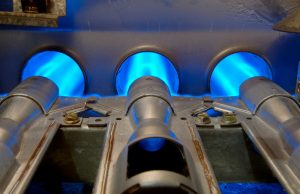 Furnaces are found in more homes than any other type of central heating system. Ironically, they’re also not well understood by the average homeowner, and that’s probably because they are so common; they’re easy to take for granted.
Furnaces are found in more homes than any other type of central heating system. Ironically, they’re also not well understood by the average homeowner, and that’s probably because they are so common; they’re easy to take for granted.
You don’t need to be a furnace expert to have a good working furnace—that’s why you have professionals like us to help with any furnace service or other heater repair in Burlington, VT you may require. In fact, only professionals with licenses to work on gas-powered heaters should ever handle service on a furnace.
But extra knowledge is always helpful, and homeowners often have questions about the furnace. Below are two of the most urgent people have—plus a bonus one that pops up as well.
Can my furnace explode (or catch on fire)?
The idea of a gas furnace, a powerful heating system that uses jets of flame to heat up the air blown into the house through ducts, makes people wonder if this fire and the natural gas can get out of control and lead to an explosion.
The major danger of fires from home heaters doesn’t come from furnaces, but from space heaters. The modern gas furnace is much safer than electric space heaters, and furnaces are built to high safety standards. Although it is possible for a gas furnace to either catch fire or explode, it’s highly unlikely. If there is a danger of this happening, the furnace will usually simply shut off—as it’s designed to. Regular maintenance will further reduce this already unlikely event. If you’ve got a good furnace and take care of it, you won’t have to worry about explosions or fires.
Are there other ways my furnace can become dangerous?
Yes, through leaks of combustion gases—specifically carbon monoxide (CO). This is a colorless, odorless, and toxic gas that’s left over after the combustion process in the heat exchanger of the furnace. The furnace exhausts these hazardous byproducts out a flue to the outside of the house, and there is little chance of CO getting into the house.
If there is a crack in the heat exchanger, which may occur due to corrosion and furnace age, CO can escape into the house. If you have CO detectors in your home (and if your house uses natural gas in any way, these detectors are required) you’ll be alerted so you can vacate your house and call the utility company. Usually, a furnace with a cracked heat exchanger must be fully replaced.
Should I install a humidifier for the furnace?
If you have an older gas furnace where you can see the flames of the burners if you look into the cabinet, you may want to have a humidifier installed. These older furnaces must draw air from the house for the burners, and this allows drier outside air to enter the house. A newer furnace draws the air the burners need from outside (this is called sealed combustion) and won’t dry out the air.
Red Rock Mechanical, LLC serves Northwest Vermont & Northeast New York. Schedule any furnace or other HVAC services you need with us today.







